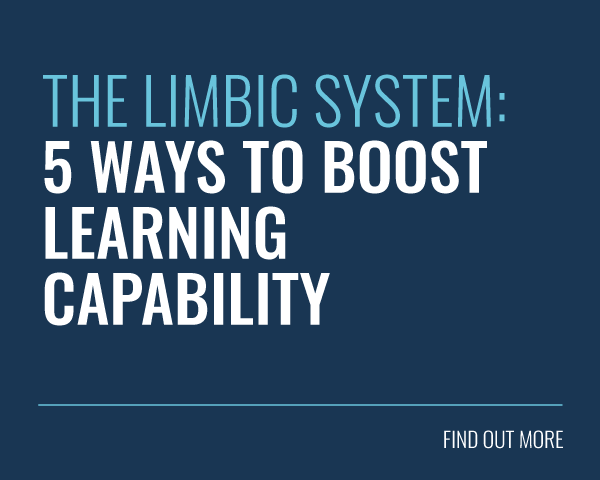Some learning apps can be used to drive behaviour change in the workplace. But are they effective enough? And how can they be used to maximum effect? This model will help you deliver the kind of business-transforming training you’ve always dreamed of!

Mobile apps have become an essential part of our everyday lives. Be it for music, social media, banking and more; it seems we can’t get enough of them!
When you consider that the average iPhone user has 60-90 apps installed, it’s easy to see why that is.
Whether it’s an app for mastering a different language or an app teaching the intricacies of quantum physics, wherever there’s a thirst for knowledge, there’s a learning app.
What’s The Appeal Of Mobile Learning Apps?
There are many reasons why mobile learning apps are so popular. Here are just a few:
-
Mobiles are great for Just-In-Time learning
This means that learning is available on-demand when it suits the learner. Learners have broken free from the shackles of traditional desk-based or classroom training! Mobile apps not only gift employees the opportunity to learn anytime (such as on the commute to work or at the gym), they also provide admins with the chance to upload new learning content anytime emergency learning is required. -
Mobiles are always with us
Mobiles are now seen as an extension of ourselves. Digital dependency has grown over the past decade to such an extent that 40% of adults now check their phone within five minutes of waking up. Also, we check our phone (on average) 2,617 times a day. The fact that they’re already such a habitual part of our lives makes them the perfect tool for learning. -
They appeal to younger generations
A key part of businesses adapting and surviving is attracting younger talent. As 98% of young people own a smartphone, mobile learning apps have become second nature when training. Add to this that by 2025, 75% of the workforce will be Millennials, it’s definitely time to shift your thinking to mobile-friendly working environments.
How To Use A Mobile Learning App For Employee Behaviour Change
Kick-Off With An Event
Charge up that team spirit and create an event to excite employees about your new mobile learning app! A promotional event will ensure that employees don’t feel like they’re starting off on their learning journey alone. This will encourage social learning amongst employees, which can provide the basis for behaviour change.
Deliver The Training
With modern learning apps, you can deliver your training with rich media formats such as videos and audio files. You can also share graphs, infographics, images, tests and anything else you think may help change behaviour. Content can be uploaded and shared in a nanosecond!
Reinforcement
Post-training reinforcement is a crucial part of the behaviour change journey. Many people mistake learning as a one-off event. This is simply not the case. Recalling and applying new info is all part and parcel of training. We forget 90% of what we learn within one month, so how do we retain a better percentage? Enter mobile learning apps! With a modern mobile learning app, you can reinforce behaviour change by using push notifications.
Battles
Create battles related to your training campaign and share them with your learners. The learners’ inbuilt desire to win will compel them to complete more training and improve their knowledge. Each battle should have 30–40 questions, this way learners will learn the correct answers to questions over time. Battles will also help uncover areas where a learner’s knowledge is weak. So make sure learners know exactly where they can go to improve their knowledge, once they know what they need to work on. The “question feedback” relating to their answers should direct them to the relevant training! Release a new battle each week to keep challenges fresh and the momentum going.
Social Learning Communities
Social learning acts as a bridge between knowledge and behaviour change. As learners share their knowledge, it will help other learners apply their training in the workplace. As more learners share their knowledge, the more likely your training is to become part of your organisational culture.
You might be nervous to include social learning in your strategy for behaviour change, but here are some tips to help ensure your social learning approach is successful:
Use a social channel on your mobile learning app: Phones are inherently social devices and learners expect to see social functionality.
Feed your learners’ love for your organisation: Social learning should always be a positive experience—give your learners reasons to love your brand.
Make learners feel valued: All too often, a social learning implementation can feel more like training that’s delivered via social media. But that’s not the point. Your social learning strategy should focus on giving learners a platform to share their knowledge.
Use a variety of media types: Everyone prefers to learn in different ways. This is just as true for sharing knowledge. Everyone prefers a different medium! Some learners will be quite content with a good old fashioned text post, whilst others will prefer vlog-style videos and others still might prefer to share audio clips or GIFs.
Create an admin controlled character: You can then use this character to start conversations and ask questions. Make sure to ask open-ended questions designed to encourage learners to share what they know. Avoid asking questions that test knowledge. People love to share their knowledge, but few people get excited about tests!
Gamification: Gamification is the process of applying gaming mechanics to non-gaming environments. It will help you make your training addictive; in fact, training that incorporates gamification is irresistible to learners! The best part is that you can use gamification to drive behaviour change. Here are a few suggestions:
There are many reasons why mobile learning apps are so popular. Here are just a few:
-
Reward your learners with a badge every time they apply their training in the workplace
-
Apply streaks to your training platform to keep learners logging in and topping up their knowledge
-
Use a level structure to encourage learners to keep growing
B.J. Fogg’s Behaviour Change Model addresses the most significant question in L&D – How can you change behaviour?
Here’s our very own Juliette Denny discussing the model in more detail:
Final Word
Before microlearning apps entered the scene, behaviour change seemed like an unattainable feat for L&D professionals. Trying to get long eLearning units to translate into behaviour change after just one intervention is a fight that The Forgetting Curve will always win. But if you arm yourself with the very best microlearning app, you can launch behaviour change campaigns that will transform your organisation. If you want even more strategy and insight to help you transform your business, then why not download our eBook: “Behaviour Change in the Workplace Using a Microlearning App.”








